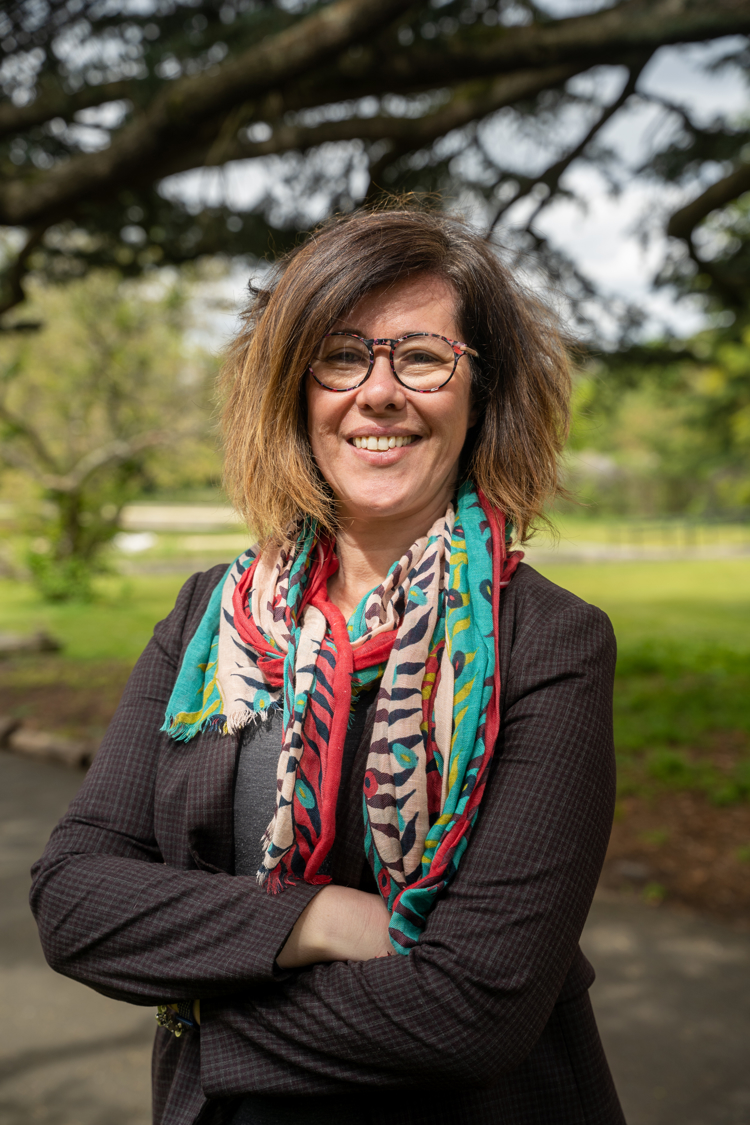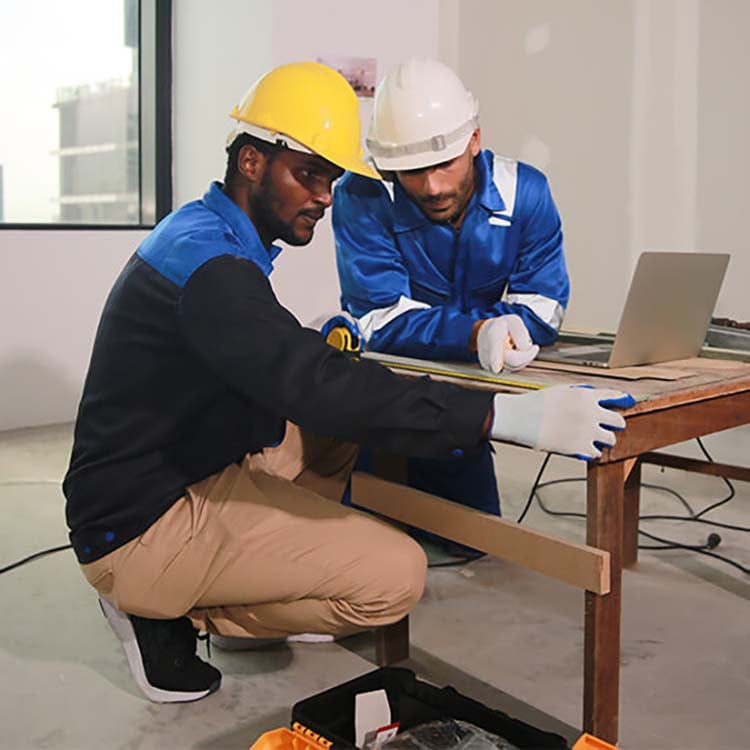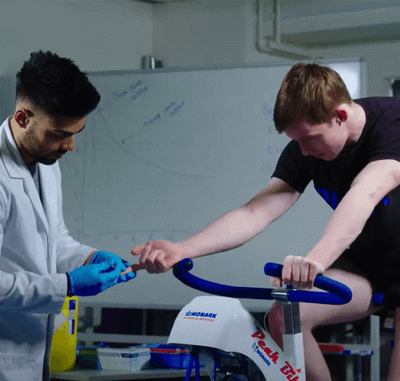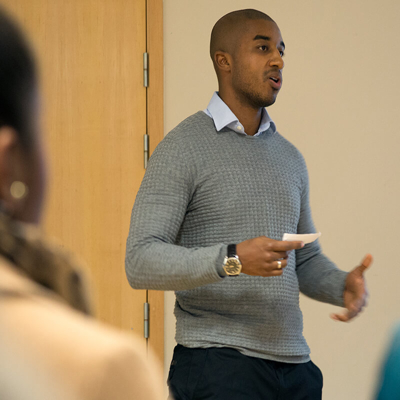/ Undergraduate /
Start date:
September 2024
112 UCAS points (or equivalent)
Foundation Year entry: 64 UCAS points (or equivalent)
UCAS code:
K200
K201 (if choosing Foundation Year)

Contribute to a sustainable future and study a BSc Construction Management. Sustainable building development is a key area in the path towards Net Zero and in studying this degree you will be part of future sustainable building solutions. Our degree combines cutting-edge education with hands-on experience, preparing you for a successful career in construction project management.
Did you know?
The demand for a sustainable built environment has influenced Construction Management significantly and has led the growth in the development of green buildings, using environmentally responsible processes and materials throughout a building’s life-cycle, from design, through construction and occupation, to demolition recycling and reuse.
This course is also available with a foundation year (September entry only)
Find out more about our Foundation Year
Foundation Scholarship available (home students enrolling on degrees with foundation years)
Modules
These modules are those we currently offer for 1 year (full-time).
- Construction Science, Materials and Performance: The module aims to introduce students to the composition and properties of materials used in buildings and structures. It covers: common engineering materials used in construction, laboratory measurement of physical properties of materials, and science of the building in relation to its performance.
- Construction Technology: Here you will learn different technological concepts used to enable the construction of building elements, from substructure to completion with a focus on low rise domestic buildings and simple industrial and commercial buildings.
- Interdisciplinary Design Project: You will begin to develop skills in design through a series of tasks where you will have to come up with a range of options to solve a design problem. The student will get introduced to the ways that professionals work collaboratively in design.
- Introduction to the Built Environment, Professional Skills and Context: The module introduces students to some of the important roles carried out by
professionals to create the built environment. They will learn about the typical professional activities, professional code of conduct and explain how these integrate with all stakeholders, processes and practices in the built environment industry. - Land Surveying, Drawing and Measurement: This module consists of land surveying, drawings and measurement. For land surveying, the students will develop an understanding of surveying equipment, conduct basic surveys, plot basic surveying diagrams, and set out simple geometries on the field. Drawings and measurement gives students an awareness of the skills required in drawing, manually using sketches and 2D/3D software and interpreting drawings. This section will be delivered mainly via small group sessions where the underlying principles regarding building drawings and measurement will be presented.
These modules are those we currently offer for 1 year (full-time).
- Construction Technology 2: Here you will focus on the technology of high-rise frame construction and new methods of construction. Students will develop a deeper understanding of contemporary construction technology principles in complex buildings including basements.
- Estimating, Tendering and Financial Management: Estimating covers the principles of design economics, pre−contract estimating and cost control in a built environment context. Tendering covers the tendering practices, which will focus on the construction manager’s responsibilities at tender stage. Financial Management covers analysis and interpretation of profit and loss accounts, balance sheets and cash flow statements, financial forecasting, budgetary control and cash flow analysis.
- Interdisciplinary Design Project 2: For this project you will present your design appropriately using hand-drawn sketches, computer generated graphics, computer aided drawings, physical models, calculations, specifications, and bills of materials/ quantity. Students will be developing their knowledge of CAE in context and its value in terms of optimisation and parametric design.
- Procurement and Contract Law: This module encourages students to adopt a problem-solving approach towards aspects of procurement strategies and contract management.They will need to justify their solutions by reference to professional principles and practice that are current within the industry.
- Professional Practice and Digital Applications: This module aims to support students in future career and employability. They will demonstrate their digital and professional skills and develop an understanding of the key considerations required to develop and support their practice, continued study and career aspirations.
This course offers all students the option of a one-year paid work placement, to boost your employability even further. If you choose this route, you will take the placement following year two of your course, and then return to complete your degree.
Why take a placement?
A placement year is the perfect opportunity to gain valuable work experience, to build on the career skills we will teach you on this degree. The connections you make on the placement will improve your career prospects further, and equip you with the skills you need to secure graduate-level employment.
How we support you
The University's Placement and Work Experience Team are experts at helping you to secure a placement. They will work closely with you from the start, helping you research potential employers, discover placement opportunities, create and pitch your CV, and will coach you to perform well in interviews. We aren't able to guarantee a placement, but our sector-leading advisors will give you the best possible chance of securing one.
Find out more about how we'll support you
We understand that your plans might change once you start your programme. If you decide not to do a placement, you will have the option of completing the three year version of your programme.
Whatever your choice, you will have access to many opportunities for work experience through our Placement and Work Experience Team, and access to face-to-face and 24/7 online careers support.
These modules are those we currently offer for 1 year (full-time).
- Construction Project Management: The module covers the fundamental theories and concepts of project management in construction. Construction projects are complex and provide challenges in managing resources mainly people, plants and materials, specialist subcontractors effectively. Students are introduced to the processes, tools and methodologies that are utilised to complete the construction projects successfully are explored.
- Interdisciplinary Design Project 3: The project will require researching the background of a site, and developments in construction practices and techniques. It will therefore contain research methods teaching, also required for the Investigative Project.
- Research Methods and Dissertation: Here students have an opportunity to independently choose and research a topic in the built environment and take responsibility for managing time, identifying objectives and following a systematic approach to solve/ explore a problem and production of a dissertation.
- Sustainable and Emerging Technologies: In this module you will develop knowledge and understanding of how sustainable and emerging technologies are transforming the design, production and management processes of buildings. This is important to ensure that these buildings are energy
efficient, resilient to climate change and contributing to UN sustainable development goals. Students will explore and evaluate options for sustainable design and production technologies and management for future buildings
This course is offered as a degree with foundation year – a four-year programme which provides an additional foundation year at the beginning of the degree, that will give you academic and practical experience, as well as the skills you need to ensure you are equipped to successfully complete your chosen degree.
£2,000 Foundation Scholarships for all home students
Find out more about our degrees with a foundation year
Foundation programme delivered by the School of Continuing Education. The exact modules for our foundation programme are currently in development. For more information, please contact us.

Skills
Our BSc Construction Management has a strong vocational focus – meaning you learn by doing and in a way that reflects how you will operate when you reach the world of work.
- This course is designed to meet the accreditation standards of the Chartered Institute of Building (CIOB).*
- Our professional advisory board actively shape our curriculum and how students learn. This ensures that our graduates emerge industry-ready, equipped with the knowledge and skills that are in demand from employers.
- We foster close partnerships with local employers to support our vocationally focused courses. This collaboration provides valuable opportunities for students to engage with potential employers.
Throughout your degree, you will benefit from engagement with and teaching by industry professionals. This firsthand industry exposure will bring to life what you learn and help prepare you for the world of work.
Learning
Our dynamic approach to learning will prepare you for the real-world of Construction Management.
- Learn alongside other sustainable engineering and technology students just like you will as a professional.
- Project-based learning will give you the practical experience of working in Construction Management.
- Formal and interactive lectures and workshops to ensure you graduate with the technical expertise you need.
Sustainability is central to Construction Management and will be embedded in everything you learn, with a particular emphasis on good health and well-being, clean water and sanitation, affordable and clean energy, and sustainable cities, and communities.

Professor Stephen Pretlove
Hello, I am Stephen Pretlove, Director of Sustainable Engineering, and I have been at Roehampton since July 2023. I have an educational background in construction, engineering, architecture and environmental design, and I have worked as an academic for over 30 years in a number of large built environment departments across the UK.
My role at Roehampton is to lead on the development of our new sustainable engineering and technology centre, and to establish and deliver a suite of innovative engineering and built environment programmes, focusing on sustainability, green skills, and meeting the zero carbon targets set by the UK government.
My research focuses on sustainability in the built environment, and the need to take a holistic approach to how buildings are designed, how they are constructed, and how they are occupied. Failure in any of these areas results in buildings that are not sustainable and much of my work involves Post Occupancy Evaluation (POE) of buildings, particularly social housing, to evaluate how a building performs in relation to the design intentions.

Lilian Martins da Silva
Senior Lecturer in Architectural Technology.

Well-being Pawfficer

Assessment
You’ll be set authentic assessments, meaning that your projects, tasks and exercises will replicate the working world of Construction Management.
This could include:
- Technical reports
- Lab reports
- Essays and presentations
Between Years 2 and 3, you can also opt for a professional placement year, meaning you have the opportunity to apply for a placement and gain valuable real-world experience.
Career
There are many opportunities for you as a Construction Management graduate - in the built environment sector, internationally, nationally, and regionally.
There are opportunities in areas of construction and project management in many sectors of the construction and engineering industries, property and estates management, facilities management, building control, design management, design coordination, Design & Build coordination, Health & Safety management, planning, site engineering and surveying and building consultancy.

Open days
Get a real taste of our campus, community and what it’s like to study at Roehampton
Applying
Full-time UK undergraduate students apply through UCAS.
Entry tariff
112 UCAS points (or equivalent)
Foundation Year entry: 64 UCAS points (or equivalent)
We welcome applications from students studying T Levels.
For all courses we also accept a wide range of other qualifications and experience. Contact us to find out more.
When we consider applications to study with us, we form a complete view of your achievements to date, and future potential, and can offer flexibility in entry requirements. Find out more about our Contextual Offer scheme.
Specific entry requirements
GCSE requirement: Maths and English, Grade 4/C.
General entry requirements
September 2024 entry tuition fees
Year one fees
UK: £9,250
Placement year: £998
We offer a wide range of scholarships and bursaries. See our 2024 financial support pages for UK students.
We also provide other ways to support the cost of living, including free buses and on-campus car parking, hardship support and some of the most affordable student accommodation and catering in London. Find out more about how we can support you.
International undergraduate students apply through our direct application system.
Entry tariff
We welcome applications from students studying T Levels.
For all courses we also accept a wide range of other qualifications and experience. Contact us to find out more.
When we consider applications to study with us, we form a complete view of your achievements to date, and future potential, and can offer flexibility in entry requirements. Find out more about our Contextual Offer scheme.
General entry requirements
September 2024 entry tuition fees
EU and International: £15,750
Placement year: £998
We offer a wide range of scholarships and bursaries. See our 2024 financial support pages for international students.
We also provide other ways to support the cost of living, including free buses and on-campus car parking, hardship support and some of the most affordable student accommodation and catering in London. Find out more about how we can support you.









